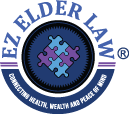
In McGee v. State Dep’t of Health Care Servs., 2023 Ca. App. LEXIS 409 (Cal. Ct. App., 3d Dist. 5/24/2023), Diana McGee established a special needs trust under the provisions of 42 U.S.C. § 1396p(d)(4)(A). This followed a malpractice action and settlement. Dianna suffered from short bowel syndrome, which impaired her ability to care for […]



